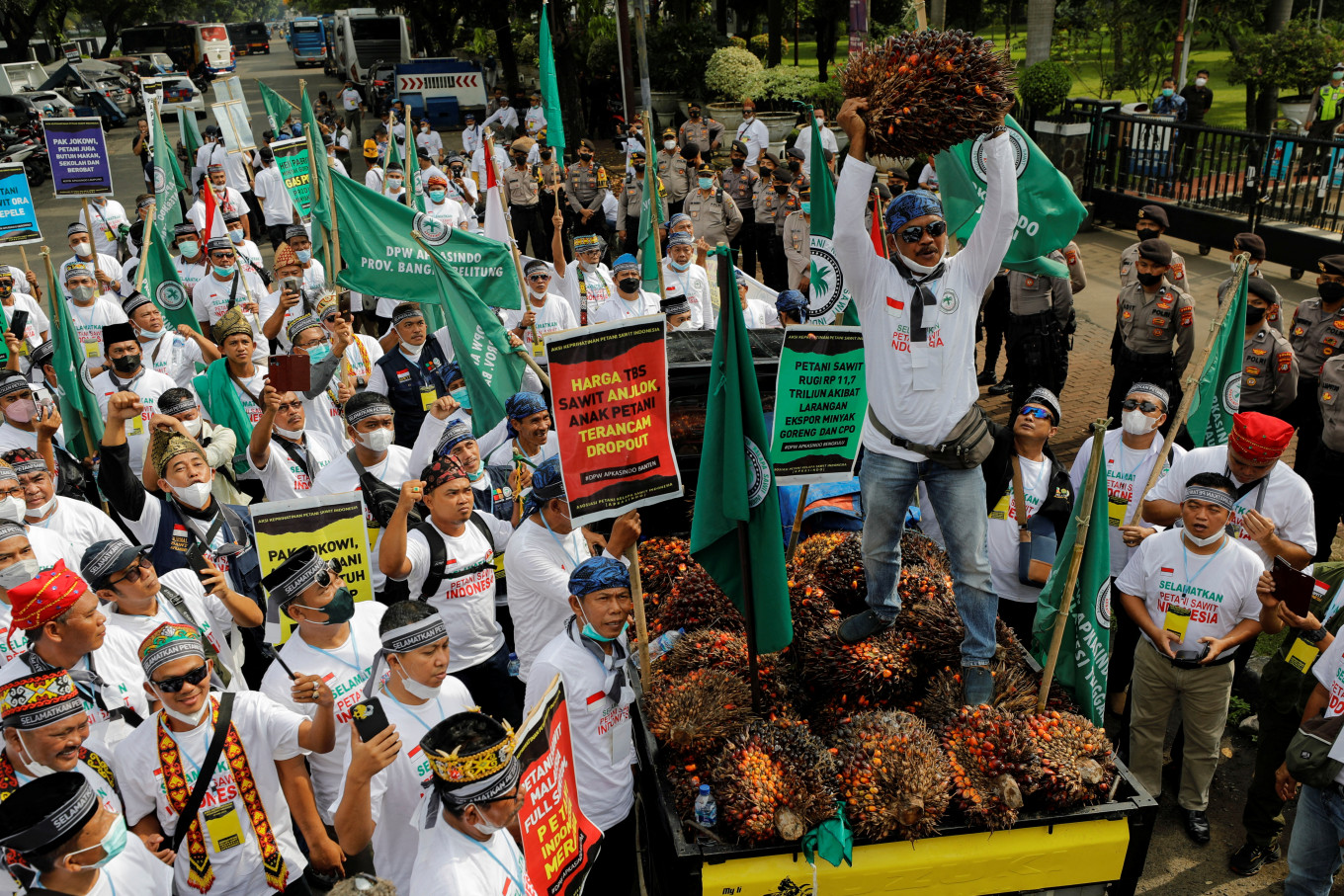Popular Reads
Top Results
Can't find what you're looking for?
View all search resultsPopular Reads
Top Results
Can't find what you're looking for?
View all search resultsEmpowering smallholders
When the government slapped a total export ban on palm oil products on April 28 through an erratic and emotionally charged policy, the prices of smallholders’ FFB fell by almost 40 percent to Rp 2,000 (US$0.13) per kilogram.
Change text size
Gift Premium Articles
to Anyone
T
he overall audit that Coordinating Maritime Affairs and Investment Minister Luhut Pandjaitan ordered last week for the whole upstream and downstream palm oil industry should pay special attention to the position of the estimated 2.7 million palm oil smallholders vis-à-vis big palm oil businesses.
One of the major issues is that the smallholders, who account for about 35 percent of the country’s palm oil production, do not have any bargaining position at all against big companies which control all palm oil mills and which are the only buyers of smallholders’ fresh fruit bunches (FFB).
When the government slapped a total export ban on palm oil products on April 28 through an erratic and emotionally charged policy, the prices of smallholders’ FFB fell by almost 40 percent to Rp 2,000 (US$0.13) per kilogram even though the international prices of crude palm oil remained at their historical high of over US$1,600/ton.
The main reason for that price crash was that many palm oil mills stopped buying that basic material from smallholders because their storage tanks began to overflow. Even more than two weeks after the export ban was lifted on May 23 smallholders still got less than 35 percent of what their FFB fetched before the export ban.
Before the export ban was imposed on April 28, smallholders had enjoyed all-time high prices for their FFB because government regulations require FFB floor prices to be set monthly for each province by an FFB price-setting team consisting of representatives of the provincial plantation office, big companies and smallholders.
Another issue that auditors of the State Finance Comptroller (BPKP) should investigate is related to the implementation of the 2014 Plantation Law provisions that require major plantation companies to help empower smallholders through commercially viable partnerships, called Nucleus Estate and Smallholders (NES). The law specifically sets the target area for each NES program minimally equal to 20 percent of the total acreage of companies’ plantations.
But farmer associations confirmed not many palm oil companies implemented the mandatory NES program due to the absence of regulations on the technical details for company-smallholder partnership contracts.
The third problem which BPKP auditors should probe is related to the snail’s pace of the replanting of smallholders’ plantations whose yield is very low or only half of big estates’ productivity due to their old trees, the use of poor or fraudulent seedlings or lack of best farm practices.
When the government set up the Palm Oil Support Fund Agency (BPDPKS) in 2015 to collect windfall tax from palm oil exports, whenever their international prices hovered above $1,000/ton it pronounced that the bulk of the funds would be used to empower smallholders by replanting their estates with high-yield seedlings and to give them farm extension services to enable them to implement best farm practices.
But the blunt fact is only 5 percent of the almost $10 billion in funds cumulatively collected by BPDPKS by the end of 2021 reached smallholders, while more than 80 percent went to subsidizing biodiesel which is produced by big palm oil companies.











